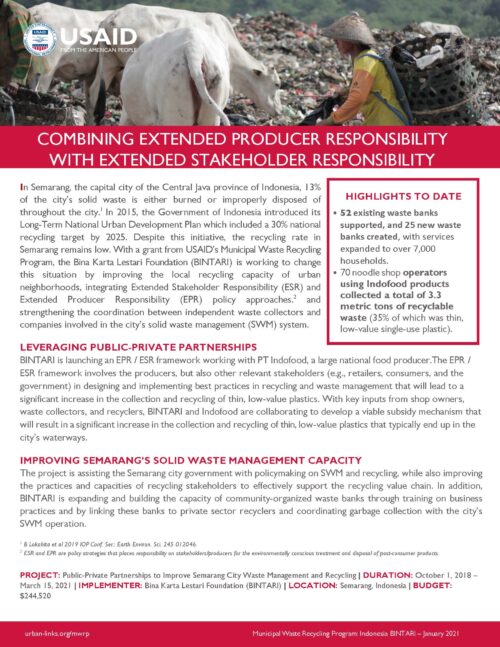MWRP Indonesia: Combining Extended Producer Responsibility with Extended Stakeholder Responsibility
With a grant from USAID’s Municipal Waste Recycling Program, the Bina Karta Lestari Foundation (BINTARI) is working to change this situation by improving the local recycling capacity of urban neighborhoods, integrating Extended Stakeholder Responsibility (ESR) and Extended Producer Responsibility (EPR) policy approaches.

